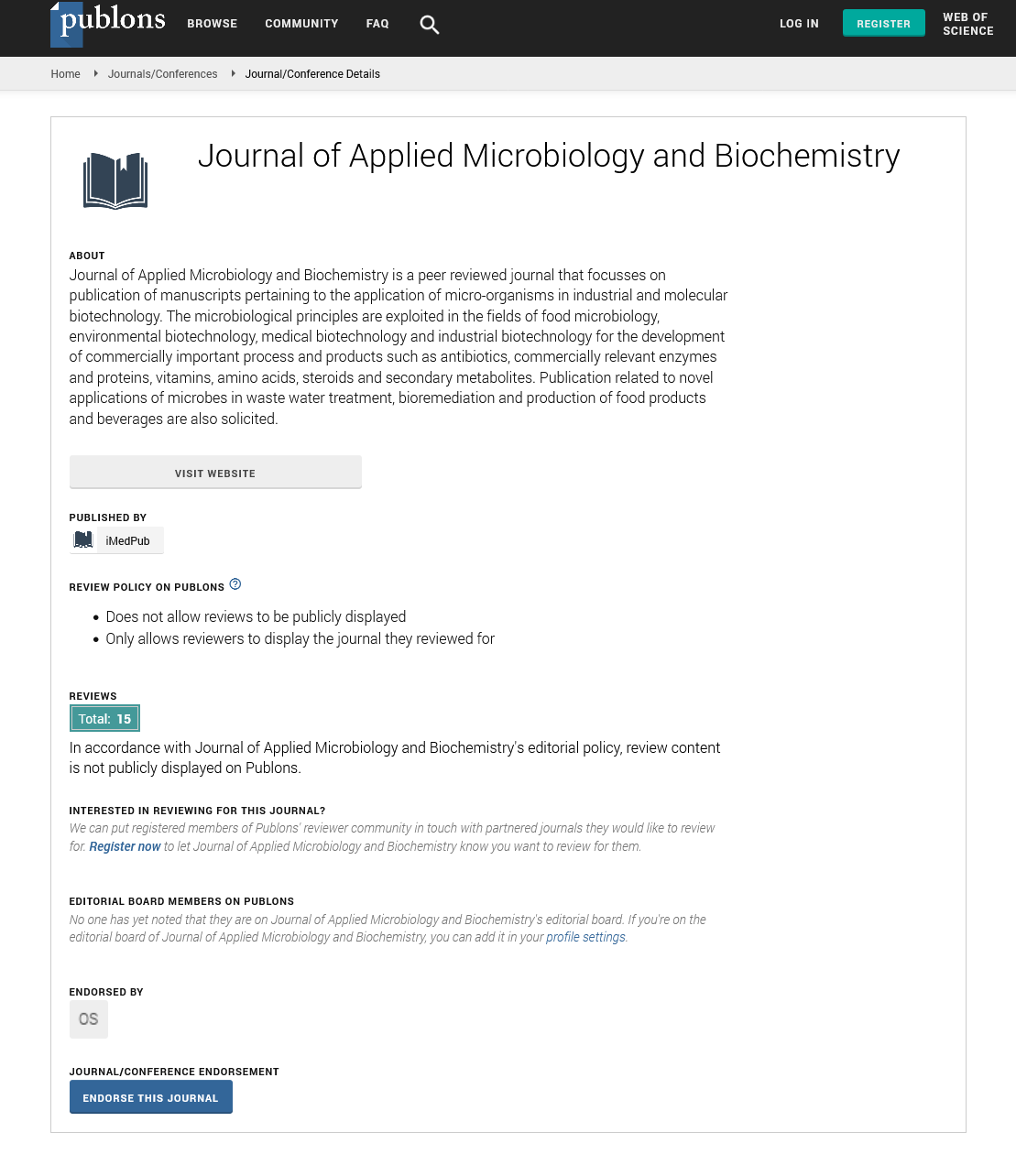ISSN : ISSN: 2576-1412
Journal of Applied Microbiology and Biochemistry
Abstract
Screening and characterization of plant growth promoting rhizobacteria and their effect on rape growth
Plant growth-promoting rhizobacteria are known as a beneficial free-living soil bacteria which can promote plant growth. The aim of this study was characterization of a new PGPR strains and their evaluation for co-inoculation on rape plant. Six isolates were characterized for production of plant growth-promoting traits. Based on the analysis of 16S rRNA, the strains were classified as Stenotrophomonas rhizophila B11, Stenotrophomonas rhizophila B12, Pseudomonas grimontii B14, Sphingobacterium kitahiroshimense B16, Microbacterium oxydans B17, and Microbacterium oxydans B19. All of studied strains had ability to produce IAA and salicylic acid, while the highest concentration of SA was produced by B14 strain (2.969 µg/ml). Among six isolates, five isolates metabolized ACC. The isolate B19 showed the highest ACC deaminase activity followed by B14 strain and B16 strain producing respectively 16837.8, 7675.3, and 5985.2 nmol α-ketobutyrate/mg protein/h. Studied rhizobacteria strains were further evaluated for production siderophores, fungal cell lytic enzymes and antifungal effect against phytopathogens. All of the six isolates produced chitinase, while the four strains B11, B12, B14 and B19 were found positive for protease production. The strains B14 and B19 that were able to produce siderophores had the best antifungal activity against Botrytis cinerea. Based on biochemical characterization, the three individual strains P. grimontii B14, S. kitahiroshimense B16, M. oxydans B19, and their consortium were tested for rape growth promotion. The results indicated that consortium (B14, B16 and B19) significantly promote rape growth increasing shoot length and leaf area.
Author(s): Joanna swiÄ?tczak
Abstract | PDF
Share This Article
Google Scholar citation report
Citations : 342
Journal of Applied Microbiology and Biochemistry received 342 citations as per Google Scholar report
Journal of Applied Microbiology and Biochemistry peer review process verified at publons
Abstracted/Indexed in
- Google Scholar
- China National Knowledge Infrastructure (CNKI)
- Cosmos IF
- Directory of Research Journal Indexing (DRJI)
- Publons
- Secret Search Engine Labs
Open Access Journals
- Aquaculture & Veterinary Science
- Chemistry & Chemical Sciences
- Clinical Sciences
- Engineering
- General Science
- Genetics & Molecular Biology
- Health Care & Nursing
- Immunology & Microbiology
- Materials Science
- Mathematics & Physics
- Medical Sciences
- Neurology & Psychiatry
- Oncology & Cancer Science
- Pharmaceutical Sciences
